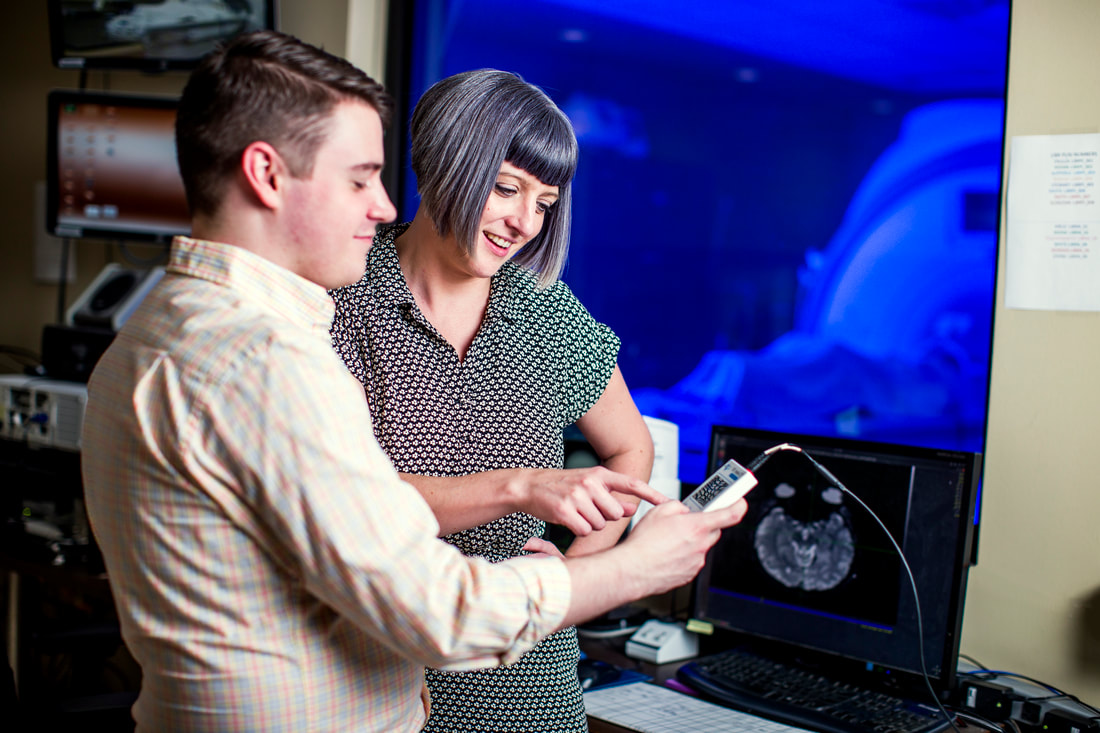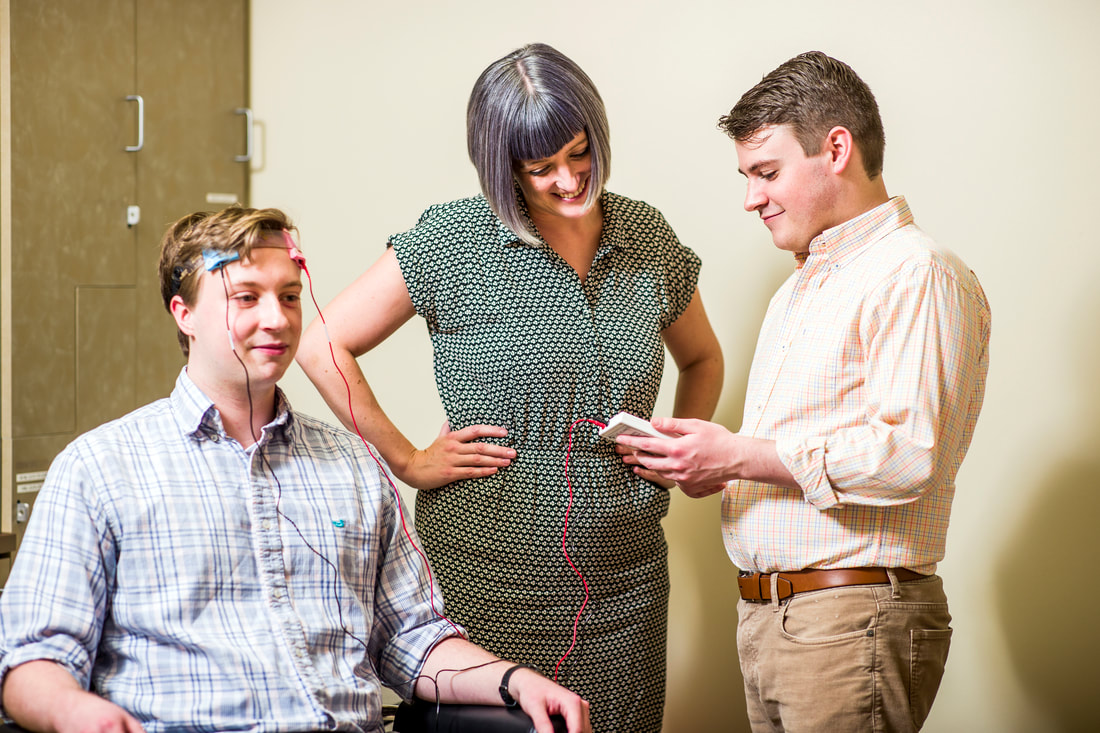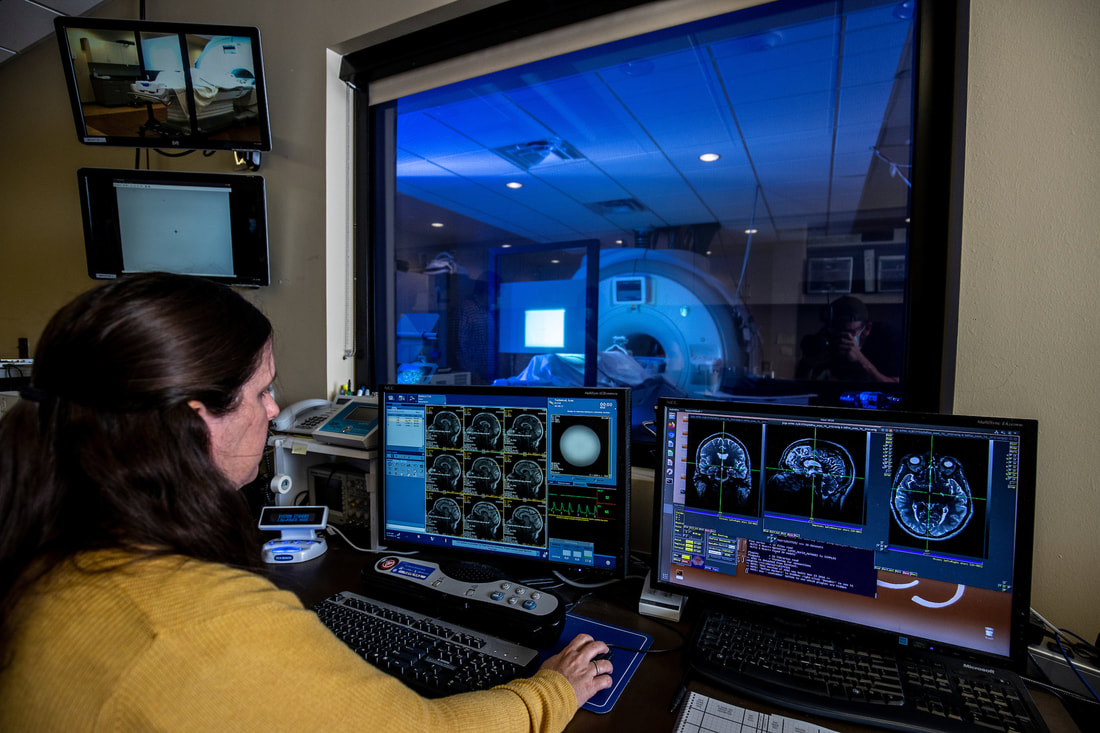Our Research ApproachDr. Ironside’s main interests include parsing process dysfunction in comorbid anxiety and depression. Her current work examines mechanisms of action of non-invasive neuromodulation as a treatment for psychiatric disorders. Dr. Ironside uses behavioral and neuroimaging measures to investigate acute effects of transcranial direct current stimulation on threat sensitivity in comorbid depression and anxiety with a view to establishing potential biomarkers of treatment response. Dr. Ironside will be extending this work using a pharmacological probe to target threat sensitivity in depression, anxiety and comorbid anxiety and depression. The goal of this research program is to improve the characterization of treatment targets in depressive subtypes, inform patient selection for future clinical trials and, ultimately, treatment selection in the clinic.
|
Research Program Highlights
Main QuestionsIs threat sensitivity the underlying process dysfunction that makes comorbid anxiety and depression so difficult to treat? Can we modulate threat sensitivity using neuromodulation to increase top-down control of threat responses? Is threat sensitivity the mechanism by which prefrontal neuromodulation reduces anxious and/or depressive symptoms?
|
ApproachAcute effects of neuromodulation and pharmacology are probed using behavioral and neuroimaging measurements designed to capture threat sensitivity.
|
Future DirectionsThe lab’s next major project uses a pharmacological probe of threat sensitivity in anxiety, depression and comorbid anxiety and depression to establish associated brain circuits and processes that could serve as treatment targets.
|
Scientific Background
Dr. Ironside received her Bachelor’s degree from Trinity College Dublin in 2004. After some time working in the public sector in London she subsequently completed two Master’s degrees in Cognitive and Decision Sciences and Cognitive Neuroscience at University College London and Birkbeck. It was there that she began working with neuromodulation under the supervision of Dr. Vincent Walsh at the Institute of Cognitive Neuroscience. She then completed her doctorate in Psychiatry at the University of Oxford under the supervision of Dr. Catherine Harmer (Dept. Psychiatry) and Dr. Jacinta O’Shea (Nuffield Dept of Clinical Neurosciences). Her doctoral work applied neuromodulation to models of acute effects typically used in psychopharmacology, using behavioral and functional imaging measures and has been published in Biological Psychiatry and JAMA Psychiatry.
Dr. Ironside next completed a postdoctoral fellowship at McLean Hospital/ Harvard Medical School, under the mentorship of Dr. Diego Pizzagalli. During this fellowship she led two large clinical multimodal neuroimaging studies in major depression, examining sex differences and effects of stress in current and remitted depression. During this time she also worked on a cross-species investigation of approach-avoidance-conflict in major depressive disorder, in collaboration with Ann Graybiel’s non-human primate lab at MIT. In 2018 Dr. Ironside was awarded a Rappaport Mental Health Award to continue her neuromodulation work in patients and was promoted to Instructor/Assistant Neuroscientist by Harvard Medical School/McLean.
In 2020, Dr. Ironside made the move to LIBR to start a position as an Associate Investigator. In 2023, she was promoted to Principal Investigator. She is continuing her work on the acute mechanisms of prefrontal neuromodulation with a view to carrying out mechanistic clinical trials of neuromodulation treatment in psychiatry.
Dr. Ironside next completed a postdoctoral fellowship at McLean Hospital/ Harvard Medical School, under the mentorship of Dr. Diego Pizzagalli. During this fellowship she led two large clinical multimodal neuroimaging studies in major depression, examining sex differences and effects of stress in current and remitted depression. During this time she also worked on a cross-species investigation of approach-avoidance-conflict in major depressive disorder, in collaboration with Ann Graybiel’s non-human primate lab at MIT. In 2018 Dr. Ironside was awarded a Rappaport Mental Health Award to continue her neuromodulation work in patients and was promoted to Instructor/Assistant Neuroscientist by Harvard Medical School/McLean.
In 2020, Dr. Ironside made the move to LIBR to start a position as an Associate Investigator. In 2023, she was promoted to Principal Investigator. She is continuing her work on the acute mechanisms of prefrontal neuromodulation with a view to carrying out mechanistic clinical trials of neuromodulation treatment in psychiatry.







